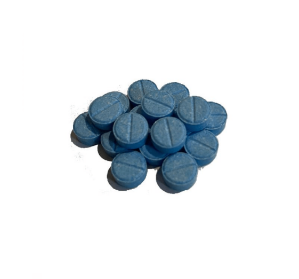“Unlocking the Power of Cell Immunity: Exploring the Synergy of Hormonal Foods for Optimal Health”
Description
For optimum health, there is an important balance between our body’s immune system and hormonal regulating. This burgeoning field of study has shown how hormonal foods can strengthen cell immune. This post explores the two sides of cell immunity and hormonal foods, in which one might enhance effects. Could this be where to find a healthier life?
-
Understanding Cell Immunity
-
Hormonal Foods: A Brief Overview
-
The Interaction Between Hormonal Foods and Cell Immunity
-
Hormonal Foods into the Diet Practical Strategies
Understanding Cell Immunity
Cell immunity, also known as cellular immunity or cell-mediated immunity, is a very important part of the immune system. Unlike humoral immunity based on the antibodies produced by B cells, cellular immunity depends upon immune actions carried out by a variety of types of cells–particularly T-cells. These cells are particularly important in identifying and destroying pathogenic substances, infected vessels or even cancer within the organism.
Factors influencing the effectiveness of cell immunity are a lot more complex, not only genetic factors but also lifestyle and dietary habits. In discovering the delicate balance between cellular immunity and hormonal foods, we find that what we eat has a significant impact on our immune cells.
Hormonal Foods: A Brief Overview
Hormonal foods are those that can affect the production, release and balance of hormones in-body. Hormones are chemical messengers which control a variety of physiological processes, such as metabolism, growth and immune function. Adding hormone-balancing foods to our diet can help us maintain a state of good health and regulate the different activities within it.
Hormonal foods are common. For instance, those rich in phytoestrogens can influence estrogen levels and include soy products, flaxseed (or linseeds), and lentils. Moreover, foods with omega-3 fatty acids such as fish and walnuts help balance the hormones. To use foods to fortify cell immunity, we must first understand the hormonal effects.
The Interaction Between Hormonal Foods and Cell Immunity
Phytoestrogens and Immune Modulation:
Phytoestrogens in different plant-based foods have already been discovered to regulate hormone balance. According to recent studies, these substances may also have immune-modulating effects. For example, genistein is a phytoestrogen found in soy. It has been shown to increase the activity of certain immune cells, helping to strengthen cellular immunity.
Omega-3 Fatty Acids and Inflammation:
Omega-3s are known to possess antiinflammatory properties. Chronic inflammation can impair the efficiency of cell immunity. If we include more omega-3 in our diet, it will help to reduce inflammation. In the resulting environment optimal immune function can be promoted and maintained. This includes the increase of T cell activity, and control over inflammatory signaling pathways.
Antioxidants and Cellular Defense:
Foods which improve cellular defense mechanisms, such as strong hormonal foods (i.e., berries, dark leafy greens and nuts), are rich in antioxidants. Antioxidants prevent free radicals from damaging cells and impairing immune function. These foods actually indirectly support cell immunity by protecting immune cells from oxidative stress, leaving them free to carry out their functions of identification and elimination.
Probiotics and Gut-Immune Axis:
The gut microbiota regulates immune responses. Hormonal foods, such as yogurt and fermented products that contain probiotics also maintain the balance of gut microbiome. In this way, the host-gut axis is further positively influenced. It increases communication between immune cells in order to maintain a balanced response (including regulating cell immunity).
Hormonal Foods into the Diet Practical Strategies
Diversify Your Plate:
For vitamins, minerals and antioxidants alone make sure that the selection of fruits and vegetables is not only colorful but varied. These include leafy greens, berries and cruciferous vegetables which help to keep hormones in balance as well as helping maintain cellular immunity.
Choose Omega-3 Rich Foods:
Add fatty fish, flaxseeds, chia seeds and walnuts to your diet for an extra boost of omega-3. These foods not only maintain hormonal balance, but also provide the nutrients needed for cell membrane integrity and function.
Incorporate Probiotics:
Add fermented foods like yogurt, kefir, sauerkraut and kimchi to foster a friendly intestinal flora. Maintaining a balanced and diverse gut microbiota benefits the immune system, including cell immunity.
Mindful Consumption of Phytoestrogens:
Although some phytoestrogen-containing foods such as soy, lentils and flaxseeds can be added to the dietary repertoire it’s important not to overlook individual hormonal balances. These foods can be beneficial for hormonal health, but should only add to a balanced diet in moderation.
Hydration and Hormonal Balance:
Hormone regulation is dependent on keeping properly hydrated. Water is involved in the synthesis and transport of hormones. Maintaining a normal level of hormones helps promote an overall balanced state, which affects one’s immune function.
This complex relationship between cell immunity and hormonal foods offers a potentially powerful way to strengthen our body’s defenses in the quest for better health. The complementarity between these two realms indicates that what we eat can have a very profound impact on the functioning of our immune system, especially cell immunity. Moreover, by eating hormonal foods of various kinds on a daily basis, we not only maintain hormonal balance; we also provide the zone in which our immune cells can fight off enemy objects and keep us healthy as a person. While research gradually unfolds the mystery of this interplay, it is vital to adopt a holistic approach toward nutrition if we are ever fully going to harness cell immunity’s power and attain lifelong good health.








Leave feedback about this
You must be logged in to post a review.